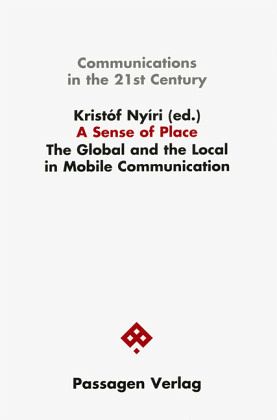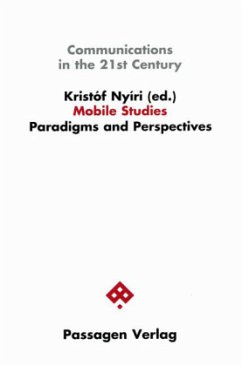
A Sense of Place
The Global and the Local in Mobile Communication
Herausgegeben: Nyíri, Kristóf
Versandkostenfrei!
Versandfertig in 6-10 Tagen
56,40 €
inkl. MwSt.

PAYBACK Punkte
0 °P sammeln!
Issues of placelessness, the spatial and social relations created by television's emergence as a dominant medium, have been around since the mid-1980s. With the triumphant march of mobile telephony these issues today appear to gain new significance, and are seen in a new light. Social science focussing on mobile communication increasingly recognizes that the mobile telephone is not only a revolutionary instrument that connects people globally, it is also a powerful tool for connections on a more local scale: an organizer of life in small spaces and communities. The volume contains papers by, a...
Issues of placelessness, the spatial and social relations created by television's emergence as a dominant medium, have been around since the mid-1980s. With the triumphant march of mobile telephony these issues today appear to gain new significance, and are seen in a new light. Social science focussing on mobile communication increasingly recognizes that the mobile telephone is not only a revolutionary instrument that connects people globally, it is also a powerful tool for connections on a more local scale: an organizer of life in small spaces and communities. The volume contains papers by, among others, Joshua Meyrowitz, Albert-László Barabási, Mark Poster, and James Katz.
Dieser Artikel kann nur an eine deutsche Lieferadresse ausgeliefert werden.












